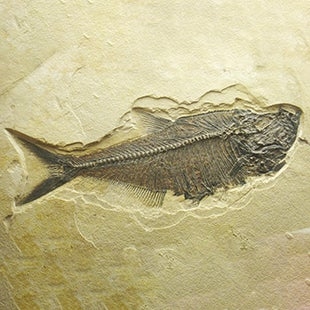
The first cooks
You aren't even sure what you're chewing anymore. You move the beef jerky to the other side of your mouth. Already, it's been three minutes on the same piece. Your jaws are getting tired. You may have eaten a really tough piece of meat before. That experience probably let you know the meat was overcooked, but it also held a valuable lesson. Human jaws are not adapted for marathon chewing.
Many of us probably eat our food too quickly. Some animals, like gorillas, have to spend several hours each day chewing. They process hard and tough foods like bark, roots, stems, and leaves. To eat these foods, gorillas have big jawbones and large chewing muscles. In contrast, humans have small jawbones. If you guess that this means we have puny chewing muscles, you're right. Size and thickness of bone can tell us how much stress, force, and strain the bone has to withstand. Scientists can use different features of a bone to figure out how an extinct animal used its muscles. A big, thick jawbone suggests that an extinct animal ate foods that were hard to process.
Compared to most mammals, humans have very large brains relative to our body size. However, big brains require lots of energy. So how do we get enough nutrition if we have puny chewing muscles but a big brain? In order to get extra nutrients, we cook our food. Cooking helps make food tender and easier to eat. In order to cook food, our distant ancestors had to learn how to use fire. The earliest known fire pits, or hearths, are about 800,000 years old. These pits are thought to belong to Homo erectus, an early human ancestor.
Homo erectus was also the first hominin species to look more like modern humans. Just like us, Homo erectus had longer legs, larger brains, and smaller teeth and chewing muscles than the ancestors we share with other apes. Before Homo erectus, our early ancestors had small brains but big teeth and jaw muscles. What caused these changes? Being able to cook food may have been partly responsible. Cooked food is easier to eat. This means big teeth and jaws are not as necessary. Also, cooked food allows the body to get energy and nutrients more quickly. This could help fuel a bigger brain. Homo erectus was the first distant human ancestor to have small teeth, big brains, and to use fire. This means that this species was likely the first to possess very basic cooking skills.
Be Part of
Ask An Anthropologist
By volunteering, or simply sending us feedback on the site. Scientists, teachers, writers, illustrators, and translators are all important to the program. If you are interested in helping with the website we have a volunteers page to get the process started.


